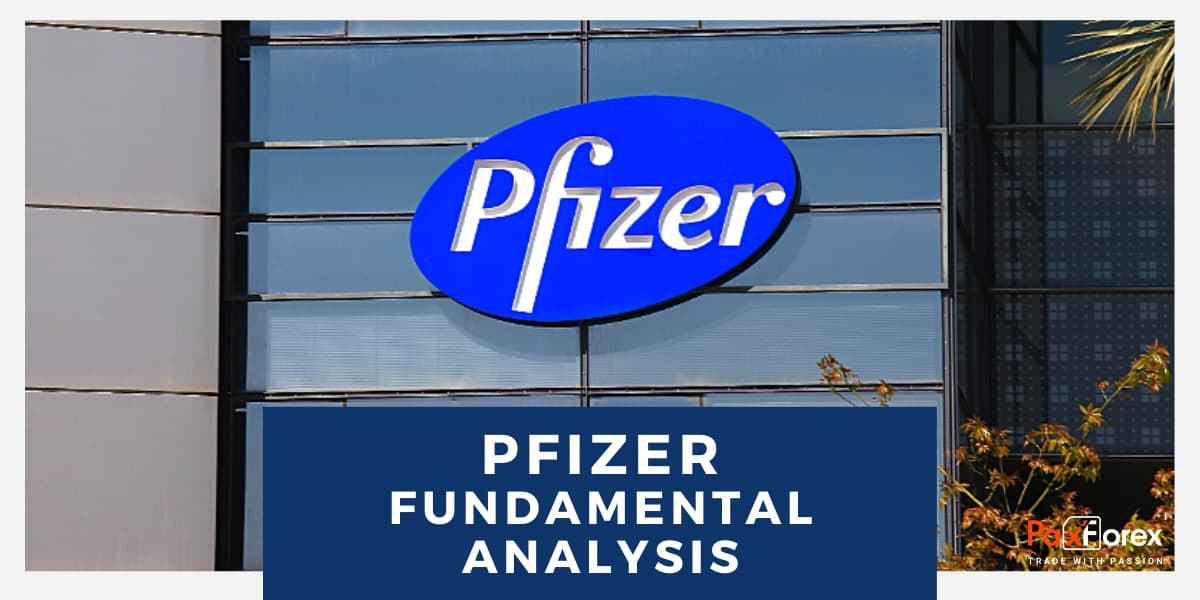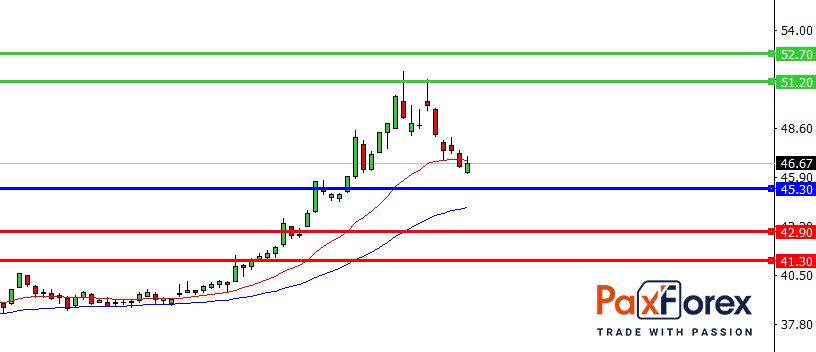
Source: PaxForex Premium Analytics Portal, Fundamental Insight
Pfizer is no stranger to victories in the fight against the coronavirus. The pharmaceutical behemoth marked its first significant victory last December when the U.S. Food and Drug Administration (FDA) issued an emergency use authorization (EUA) for its vaccine. This made Pfizer the first company to bring the COVID-19 vaccine to market.
Other victories accompanied. For example, billion-dollar orders from the U.S. and Europe. And this spring, the vaccine received EUA approval for use in young people ages 12 and older.
Earlier this month, Pfizer announced more good news. The FDA has given full approval to use the vaccine. Now the question is, could this be Pfizer's biggest win? Let's find out.
First, let's look at the distinction between a EUA and full approval. The FDA issues a EUA in emergency situations - such as a pandemic. The EUA for coronavirus vaccines was based on data collected two months after Phase 3 trial participants received a full vaccination regimen. The idea is to give people access to a life-saving product a little earlier because of an extreme need for it. The EUA approval is only valid as long as the situation is considered an emergency. In the meantime, the company continues to collect clinical trial data to confirm its initial findings.
To get full approval, Pfizer provided the FDA with six months of data after the second dose of the vaccine was administered. Again, this is data from the phase 3 study. The company also submitted more detailed manufacturing information to the regulator. The FDA approval based on this data confirms the safety and efficacy of Pfizer's vaccine. And it is not temporary, like the EUA.
The approval is critical since it indicates Pfizer can expect to sell its vaccine well beyond the pandemic. But will the approval boost demand for Pfizer's vaccine? Yes, and in two ways.
First, some people who were initially worried about the safety of the vaccine may feel more confident about getting vaccinated. This is because the FDA looked at data collected over a longer period of time and still found the vaccine to be safe and effective.
Second, health systems and other organizations can now easily impose mandatory vaccinations on employees. Spectrum Health of Michigan, for example, announced this summer that it would require vaccination within eight weeks of FDA approval of the vaccine.
The next question is, will this increase Pfizer's sales? The answer: not right away. The U.S. population aged 18 and older is about 255 million people. Technically, if every person needed the vaccine right now, that would be 510 million doses. (Pfizer's product is a two-dose vaccine.) Under the current agreement with the U.S., Pfizer supplies the country with 500 million doses of the vaccine.
But we must keep in mind this: 172 million Americans have been fully vaccinated to date - and that includes some teenagers and people who received Moderna or Johnson & Johnson vaccines as well as those who chose the Pfizer vaccine.
Since many Americans have already been vaccinated, the current supply of Pfizer vaccines may be enough to meet the new wave of demand.
Nevertheless, these new groups who may choose the Pfizer vaccine could lead to more orders - and more revenue - in the longer term. Here's why. If a large number of people choose the Pfizer vaccine today, they will need a Pfizer revaccination in the future. And if they're satisfied with their vaccination results, they'll likely want to continue vaccinating with the full Pfizer vaccine regimen later. Experts - including Pfizer's CEO - say that the coronavirus vaccination could become annual. So the government may have to place large orders to meet demand.
Let's go back to our original question. Is approval a major win for Pfizer? Perhaps it is. The company had taken the top spot in the market even before approval. It fully vaccinated more Americans than its competitors, 93 million, compared to 65 million for Moderna and 14 million for J&J. Now the FDA's decision confirms the quality of the vaccine and ensures its place in the post-pandemic market. This, as well as the possibility of more revenue in the future, is a vital win for Pfizer and its investors.

As long as the price is above 45.30, follow the recommendations below:
- Time frame: D1
- Recommendation: long position
- Entry point: 47.38
- Take Profit 1: 51.20
- Take Profit 2: 52.70
Alternative scenario:
If the level of 45.30 is broken-down, follow the recommendations below:
- Time frame: D1
- Recommendation: short position
- Entry point: 45.30
- Take Profit 1: 42.90
- Take Profit 2: 41.30













